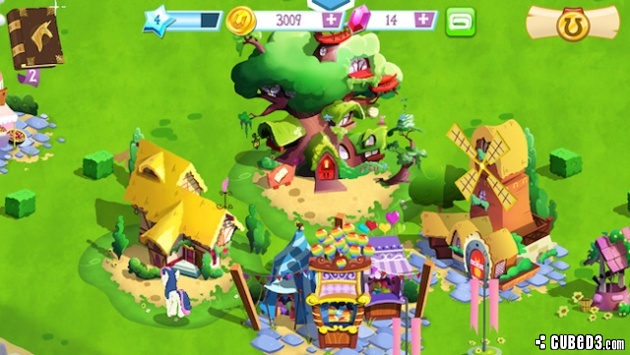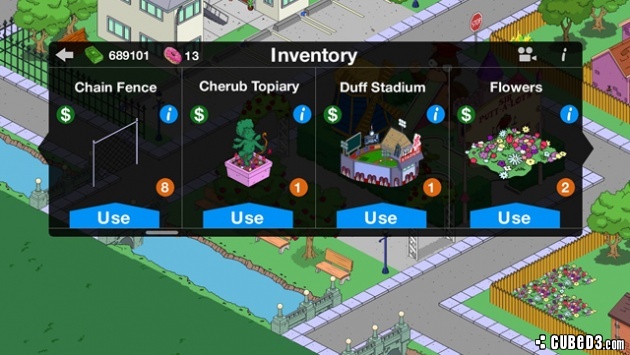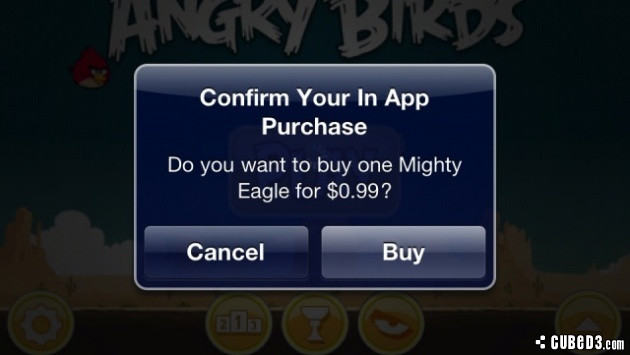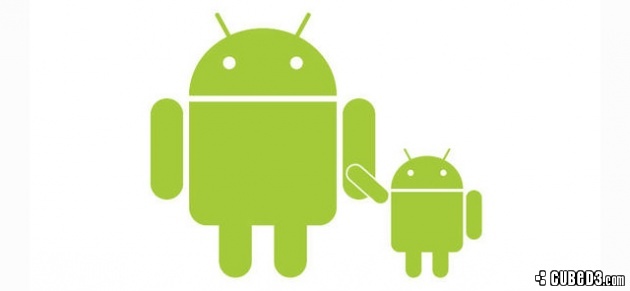Has the whole issue simply been blown out of proportion?

The issue stems from an increasing number of reports that children specifically are being targeted for seemingly free games that make revenue using additional in-game purchases - extra coins, virtual gifts and features that need funding to be unlocked. One example is My Little Pony, where a set of berries costs a staggering £69. That's right, downloadable content that's priced more than a standard retail game and presumably made more revenue for its makers than the horse meat scandal.
A handful of in-game purchases later and an unwitting child would presumably be grounded, tears flowing and banished from the Apple store. One example saw a youngster aged five rack up an extortionate bill of $3000 (£1,700) in just fifteen minutes with an iPad, password in hand from his parents. It was then down to the device's manufacturer Apple to reimburse the parents for their naive mistake.
Now the UK Office of Fair Trading (OFT) has pledged to look into the situation and what can be done to help parents protect their wallets and make a more knowledgeable decision when letting their children download certain games that are labelled as free.

The OFT is not seeking to ban in-game purchases, but the games industry must ensure it is complying with the relevant regulations so that children are protected. We are speaking to the industry and will take enforcement action if necessary.
Despite the ridiculously high costs in some virtual add-ons, is it really the fault of the game developer who approaches projects with a more contemporary revenue model? On one hand, the pricing structure for certain items - virtual ones at that - do need better consideration. Paying over the odds for digital berries or coins to grow a virtual village is just too much and seeps into the aggressive realm of possible addiction. Can this pricing structure really be appropriate for a children's game? On the other hand though, the developers are just doing their job. The core game is indeed free and if you really want extras you simply pay for it. Messages appear with the costs and the option for players to accept or decline a purchase. The approach has been dubbed "immoral" by its fair share of critics, but are paid incentives really just in place to act as a way to "extortionate children"?

The grey area exists when certain games, a notable example being EA's The Simpsons: Tapped Out, where if an in-game purchase is cancelled it almost punishes the player with a message "congratulations, you made a baby cry". There does need to be some regulation in these incentives and downfalls of in-game purchases. No-one, regardless of age, wants to feel punished for not buying or pressured with continual prompts to do so. The proportion of what's freely available and what's accessed by paid means also needs to be considered. Hypothetically, if a house builder allows a player to forge a home with a door, two windows and all the furnishing must be paid for, should that be fair? A fully fledged and more cost effective paid app equivalent, furniture and all, could be overlooked because of these games.
A regulation on a minimum amount of free content could be an option to tackle concerns about in-game transactions. Perhaps a limit on the number of times in-game purchase messages could appear, or the option to disable these entirely from a system level - either within the games themselves or by way of a filter on the download/app stores.
At the moment games that are free but have the option to purchase additional items aren't made visibly clear on the Apple iTunes store, nor Android and even the Nintendo Wii U eShop. Shoppers are able to read a description of a game, and see a list of additional or in-game purchases, but this still is fairly discreet for the average consumer who's tempted more so by the age-old word "FREE" than the afterthought small print. On the Nintendo eShop the current free-to-play game Tank Tank Tank! from Namco Bandai does have a "DL" badged next to it, but this comes with ambiguity, what exactly does it mean? Would consumers even notice and simply leap into the game because it's free? Like Apple iTunes, the eShop does display a list of additional content but there still isn't a clear message indicating that there is optional, paid content available.

That's what it boils down to - awareness. There doesn't need to be a fire wielding mob of concerned, ignorant, public swarming development studios and preaching "save the children". The growing download industry just needs to approach it with clear messages and a well thought out balance. We don't want large, big bold and obtrusive red text issuing "warning: contains paid content" as it would be a detriment to what is, on the whole, a valid business model. Likewise, the industry does need relevant messages to consumers that certain games are free, but do contain optional paid content. If you don't wish your children to go spend crazy, simply enable a pin; control what games they can download and play; these devices aren't there to babysit in our digitally connected world.
The means of protecting paid content by way of parental control is certainly not a new approach - it's been implemented in digital TV set top boxes, internet ISPs for years, decades now, but accessing these controls and being aware of them hasn't been as well promoted as it could be. However, it should be down to parents to be better prepared when giving their children expensive gadgets to handle - tablets, mobile phones and games consoles certainly aren't cheap toys. A simple two minute approach to enter pin, one that's not shared with the children would save time and money. A parent who simply hands over a pin number is just walking into a trap and shouldn't give access to youngsters who may not have a clear idea about the value of money would certainly be too young to make sensible purchasing decisions. It certainly shouldn't have to rely on hardware manufacturers like Apple or phone networks to have to reimburse blissfully unaware parents for their children's actions.

What are your thoughts on in-game purchases, freemium and the responsibilities of both parent and publisher?

 Sign In
Sign In 20.04.2013
20.04.2013 
 Ikana
Ikana 
 Link to this post:
Link to this post:  Subscribe to this topic
Subscribe to this topic Features
Features





 Top
Top

